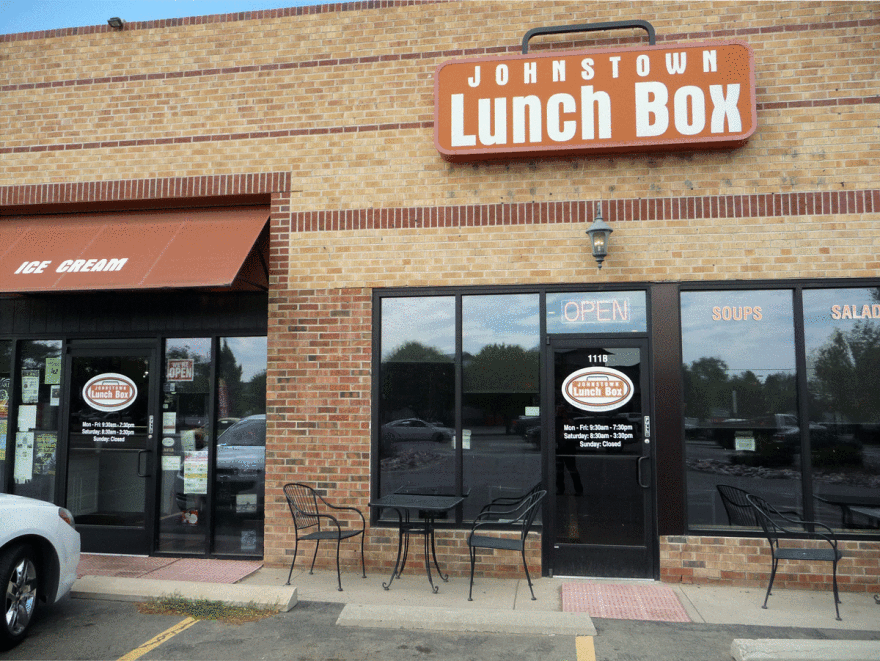The Johnstown Lunch Box is clean and bright. A chalkboard sign advertises a Chicago-style hot dog for $5.99. The restaurant is packed with oil and gas workers, high school students and parents with kids.
Chris and Michelle Edwards started the business seven years ago.
“I was in lending and banking before and we just wanted to do something different when the whole financial crisis hit,” Edwards said. “We live in town, so we were just thinking what was missing in here where we want to eat at.”
They are hands-on owners, making sandwiches and taking orders with the help of their dozen or so rotating part time employees, depending on the season. Employees are paid $8.31 an hour, the state’s current minimum wage. They also earn a few tips. But after November, that could change. Edwards will be paying close attention to one question on the state’s ballot - should Colorado’s minimum wage be raised to $12 an hour by 2020?
It’s a topic the state legislature has failed to act on. Supporters of the measure say minimum wage workers are not able to afford basic necessities. Those against what’s called Amendment 70 say it could hurt small businesses, like the Johnstown Lunch Box.
Edwards agrees.
“Well, we’d have to raise our prices or we’d have to shave hours,” he said. “Just because of the nature of it. The restaurant business is a low margin business anyway, so you have that big of a jump, it would have an impact.”
Edwards’ workers are mainly high school and college students, and most of his staff are women, which is not unusual. About three quarters of minimum wage workers in the state are women according to a study by the National Women's Law Center. They also found that women make up "nearly two-thirds of minimum wage workers across the country."

If the minimum wage went up 90 cents a year, until 2020 like Amendment 70 proposes, Edwards isn’t sure if it would provide an incentive to be a better employee. He doesn’t view the Johnstown Lunch Box as a long-term job for his workers. He sees it as a transition to a higher wage, or supplemental income.
“You work to get a better job, if you’re college educated you get paid more.”
But is everyone who earns the minimum working their way up? It’s tough to answer that, said state economist Alexandra Hall. She can’t offer a demographic breakdown of who works minimum wage jobs in the state.
Part of the problem is that data on minimum wage workers is collected on a national level by the federal Bureau of Labor Statistics and it doesn’t include any Colorado-specific information.
“The sample size is small enough that you can’t produce a statistically valid estimate once you get down to the state level,” Hall said. “Think of the minimum wage as a floor. The market can drive it above the minimum wage, but it can’t drive it below.”
Even if voters kill Amendment 70, the state minimum wage will still go up to $8.56 an hour as of January 1, 2017. That’s because in 2006 voters approved adjusting Colorado’s minimum wage annually for inflation which is measured by the Consumer Price Index used for the state. But that has a couple drawbacks. Regional price differences vary greatly - it’s more expensive to live in Aspen than Johnstown - but workers across the state are paid the same minimum wage. Inflation can also go down, meaning the minimum wage does as well. That happened in 2009. Inflation declined and so did the minimum wage the following year.
Many of the Lunch Box’s customers thought the minimum wage should be increased to $12 an hour, including Tom Finch, a retiree and veteran.
“I just think a fair wage is what people deserve and I’m willing to pay for good service,” he said.
This story is in collaboration with NPR's series, A Nation Engaged, which is taking a deeper look at economic opportunity in America. Click here to learn more about the series.







